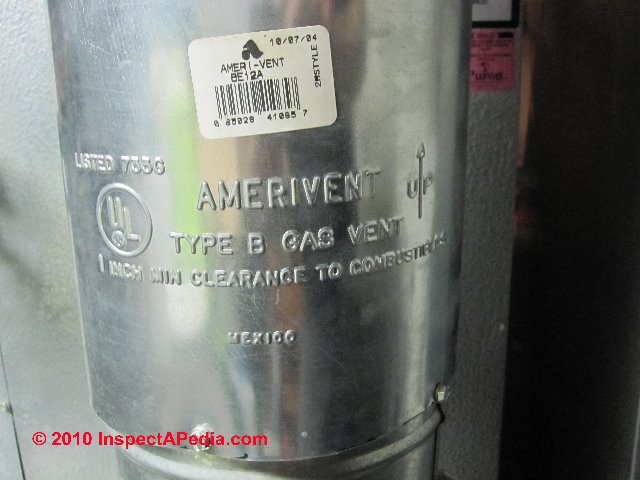Stove pipe is made in single and double wall versions.
Triple wall stove pipe clearance.
Triple wall all fuel chimney for use with wood stoves fireplaces furnaces boilers stoves ranges water heaters or other appliances fueled by wood oil coal or gas.
Using a heat shield on a single wall stovepipe allows you to reduce the clearances from 18 to 6 to the wall and 9 to the ceiling.
Once these clearances are met you must convert your stove pipe to class a chimney pipe for proper venting of your stove.
The chimney could very well be ht or class a generic not a fireplace chimney but most of us have only seen such chimney with 2 clearances.
For example a single wall stove pipe requires 18 inches of clearance from ceilings or walls.
So 1 stop using the thing until you solve this.
2 clearance to combustibles.
Our class a tiple wall chimney systems stay cool on the outside while providing a hot draft on the inside.
018 aluminized steel intermediate liner.
A class a chimney pipe requires less clearance than a single or double wall stovepipe which is only intended for use within the same room as the stove.
Listing double and triple wall insulated pipe is listed as class a vent pipe and must meet either ul standard 103 or 103ht.
Chimney pipe also is made in two types double wall and triple wall.
Double wall stove pipe on the other hand requires only 8 inches of clearance from the ceiling and 6 inches from a wall.
Dvl s double wall air insulated design reduces clearances to combustibles from 18 in.
Those clearance spacings are normally found in at least two locations.
To 6 in the closest clearance to a wall of any connector pipe.
Ul listed to ul 103ht mh7399 please note.
Ul standard 103 requires pipe capable of safety operating with an internal temperature of 1 000.
Materials and construction 016 430 stainless steel outer wall or 018 galvanized steel outer wall.
Dvl improves stove performance by maintaining high flue gas temperatures for a strong steady draft.
Notes to the metal chimney fire clearance table above.
016 430 stainless.
Many think stovepipe can run from the wood stove right up through the ceiling and roof.
This boosts stove efficiency by exhausting hot flue gases easily and efficiently.
As listed where shown in the table above means that the acceptable fire clearance distances for those chimney types must match or comply with the manufacturer s instructions.
All stove chimney pipe is chosen and classified by the inside diameter.
2 remove some wood and there will be a label on the chimney itself this states the model and the clearances.
Triple wall class a pipe is the preferred solution for homeowners installing their own system due to its increased margin of safety.

